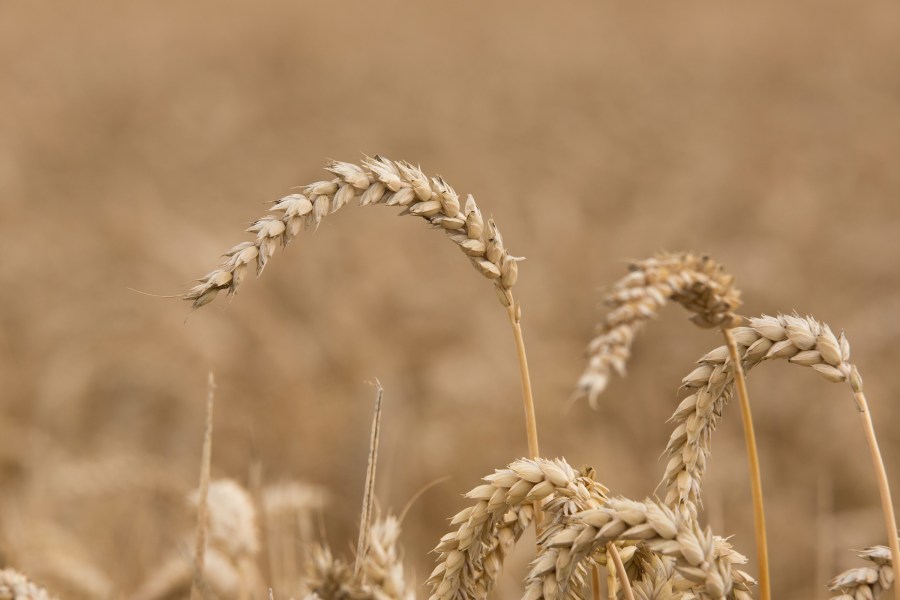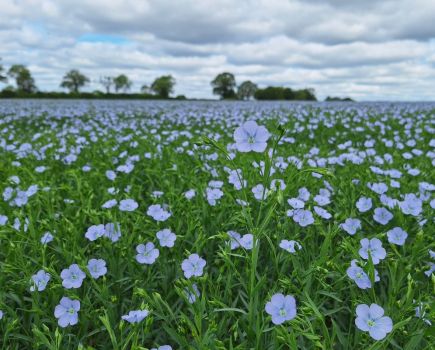The Genetic Technology (Precision Breeding) Act passed into law, with Defra calling it ‘a major step’ in unlocking growth and innovation in new technologies.
The Act will set in motion changes to allow farmers to grow crops which are drought and disease resistant, reduce use of fertilisers and pesticides, and help breed animals that are protected from catching harmful diseases.
Precision breeding involves using technologies such as gene editing to adapt the genetic code of organisms – creating beneficial traits in plants that through traditional, breeding would take decades to achieve otherwise. This enables scientists to safely create foods that are more flexible, adaptable and plentiful for years to come, says Defra.
Under the provisions of this Act, a new science-based and streamlined regulatory system will be introduced to facilitate greater research and innovation in precision breeding – with stricter regulations remaining in place for genetically modified organisms (GMOs).
‘Forefront of revolution’
“The Genetic Technology Act is fantastic news for British consumers and farmers. Precision Breeding technologies are the future of food production not just at home, but around the world, and this Act will put our nation at the forefront of this revolution,” said food minister, Mark Spencer.
“Some 40% of crops globally are lost every year to floods, pests and other external events, and this new law will unlock our agri-biotech industry to support resilient food production for decades to come.”
Industry response
The news has been met with a positive response from the wider agri-industry, with the NFU heralding it as welcome news after more than 20 years of campaigning. “For more than two decades, we’ve advocated for the development of biotechnology within agriculture and horticulture, and for science to dictate the policy. I am delighted that, after working closely with Defra, the Food Standards Agency, parliamentarians, and industry partners to ensure the Bill’s smooth progress, it has passed its final hurdle,” said NFU vice president David Exwood.
“Biotechnology is by no means a silver bullet, but having access to more targeted precision breeding tools for our crops and livestock could really help bolster climate-friendly food production and support biodiversity here in Britain.”
Improved route to market
NIAB’s chief executive, Professor Mairo Caccomo said these new rules help bring the UK in line with other countries across the globe. “It follows the introduction in April 2022 of a simplified regulatory process for conducting field trials of precision bred crops, which has already stimulated new research activity across a range of crop species and traits. These include the development of wheat with improved food safety, oilseeds with enriched Omega-3 oils, tomatoes with enhanced vitamin content, and barley with the potential to improve livestock productivity while reducing greenhouse gas emissions.
“The new regulatory framework confirmed today should provide a more straightforward route to market for innovations like these. Gene editing offers significant opportunities to support healthier, safer and more sustainable farming and food production systems, at a time when such advances are urgently and increasingly needed.”
More to come
Though the news is a positive step for the industry, Bayer’s head of crop science in the UK, Nils Bauer, said it’s only the start. “To take advantage of the tremendous opportunities for progress it offers, there is a lot of work to do to get both the secondary legislation governing precision breeding and the public understanding of it right.
“Plant breeding is one of the valuable tools we have in making our food production more economically and environmentally sustainable by producing more from less. The ability precision breeding techniques like genome-editing give us to meet sustainability outcomes with greater efficiency and accuracy of desirable changes entirely within a crop’s existing genetic building blocks is immense.”
“This is an important step for scientists and developers to explore a wide range of advances here alongside the yield increases that reduce the amount of land we need to produce our food, leaving more space for biodiversity and other eco-systems services. These include potentially better resistance to damaging pests and diseases to reduce the need for pesticides; greater nutrient use efficiencies to optimise fertiliser utilisation; superior resilience to stresses like drought and waterlogging for greater crop reliability; and targeted grain quality improvements for healthier, more nutritious foods and animal feeds.”




